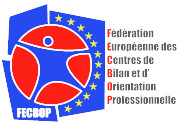Bilan de compétences is a complex guidance methodology designed for all types of beneficiaries. It is sometimes translated as skills audit and defined as “analysis of knowledge, skills and competencesof an individual, including their aptitudes andmotivations to define a career project and/orplan professional reorientation or training project” (see CEDEFOP Glossary, 2011). It allows the identification and valorisation of:
- personal and professional skills and competences
- aptitudes and potential
- interests and motivations
Its objective is to:
- define a strategy of individual professional development
- develop new skills in a specific job
- construct an individual training pathway
- prepare an Accreditation/Recognition of Experiential Learning
- support and accompany external or internal job mobility
- describe and present one’s skills and competences
The bilan de compétences can be particularly useful in public or private employment services to:
- understand individual professional situations and define a satisfying strategy for placement;
- plan mobility towards jobs requiring transfer or an improvement of personal skills, thus needing training or validation of experiential learning;
- elaborate, modify or validate a professional project;
- define or re-define insertion in the labour market.
Course of the bilan de compétences
The bilan de compétences is a three-step process that typically lasts 6 to 8 weeks (16 to 24 hours of individual and collective sessions):
1st phase:
It confirms the commitment of the beneficiary, after informing him about the conditions of the process, as well as methods and tools used. After analyzing the initial demand, objectives are defined and contractualised.
2nd phase:
This phase is the heart of the bilan de compétences process. It allows, according to the objectives that were defined during the previous phase, to:
- Identify and analyse interests and motivations, skills, knowledge, different areas of expertise, strengths and areas for improvement
- Learn more about the professional and economic environment (current situation of the company, the lebour market, different occupations, training opportunities, etc.)
- Determine possibilities and hypothesis of professional and personal development
This phase involves the expertise of qualified professionals trained for the use of appropriate methods and tools.
3rd phase:
This is the final phase in which the beneficiary and the counsellor work on:
- the results of the investigation phase (second phase) and the synthesis report
- the identification of success factors or threads concerning the realisation of the career project
- the definition of the main steps for the implementation of the career project
A final report is the result of this last phase. This document may contain other information:
- Circumstances of the bilan de compétences
- Acquired skills and skills and competences that should develop in order to successfully realize the project
- Action plan



